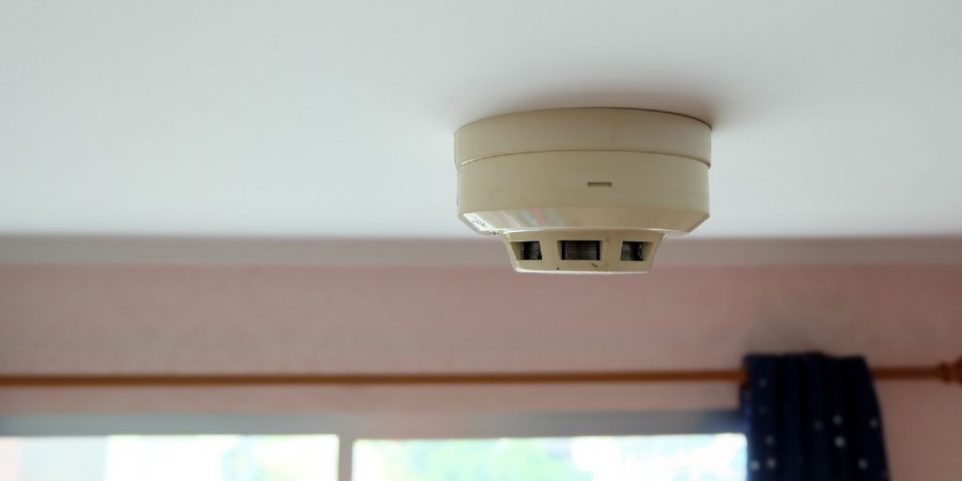How Many Smoke Detectors Do I Need? Let’s Find Out

Having a working smoke detector in your home is essential for keeping your family safe in the event of a fire. You may already have a few detectors in your home, but do you know how many you really need and where to place them for optimal protection? In this article, we’ll discuss the different types of smoke detectors available, how to determine the number of smoke alarms you need for your home, and the best practices for placement. You’ll also learn some of the most common mistakes people make when it comes to smoke detectors and how to troubleshoot your fire safety system. Without further delay, let’s get started!
Smoke Detector Basics
When it comes to home safety, one of the most important pieces of equipment you can install is a smoke detector. These small devices are your first line of defense against potential fires, and when used properly, they can save lives. But how many smoke detectors do you need?
The number of smoke detectors you install will depend on your home’s layout and size. For example, if your home is large, you may need multiple smoke detectors in several different locations for adequate coverage. Additionally, all smoke detectors should be interconnected so that they all sound the alarm in case of a fire.
Smoke Detector Placement
When deciding how many smoke detectors to install, placement is key. The National Fire Protection Association (NFPA) recommends installing smoke detectors in each bedroom, outside each sleeping area, and on every level of your home, including the basement. However, your specific needs may vary depending on your home’s layout and size.
To ensure that your smoke detectors are placed in the correct locations, it’s important to familiarize yourself with local building codes and any other regulations which may apply to your area. Additionally, we recommended placing all smoke detectors at least nine feet away from any wall fixtures or obstacles that may stop them from detecting smoke quickly and accurately.
Smoke Detector Types
When purchasing smoke detectors for your home, you’ll likely come across two main types: photoelectric and ionization detectors. Photoelectric smoke detectors are best at detecting larger particles of smoldering fires such as those caused by cigarettes or faulty wiring while ionization detectors are better equipped at detecting smaller particles, which can result from flaming fires such as those caused by oily substances and matches. It’s important to purchase the right type of smoke detector based on where they’ll be installed in your home, as well as any specific requirements you have for early detection.
Requirements
In addition to determining how many and what type of smoke alarms you need for your home, it’s also important to make sure they meet certain requirements for safety and efficacy. All smoke detectors should be UL-listed and have an expiration date printed on them so you know when it needs to be replaced or serviced according to the manufacturer’s instructions. Additionally, you should check the batteries regularly to ensure they’re working properly and the alarms will sound if needed.
Maintenance
Finally, it’s important to perform periodic maintenance on all of your smoke alarms to ensure that they’re operating correctly and reliably. This includes cleaning the sensors with a vacuum cleaner attachment or compressed air every three months; replacing batteries when necessary; testing the alarms monthly; and replacing any old or defective units with new ones as soon as possible. By keeping up with regular maintenance, you can ensure that all of your smoke detectors will work properly when they’re needed most.
It’s essential to install and maintain a reliable smoke alarm system in your home to keep your family protected should a fire occur. To determine the right number and type of smoke detectors you need, consider factors such as your home’s size and layout, your local building codes, and the type(s) of fire your home is most likely to experience. Additionally, it’s important to check batteries regularly, perform maintenance as needed, and replace any aged or defective units quickly. By taking all of these precautions, you can better protect yourself and your family and ensure that you are adequately prepared in the event of a fire.
Decades of Combined Expertise
Best Buy Guidebook is a culmination of online publishing lessons learned. From SEO to paid ads, our team has experienced the highest of highs and the lowest of lows. Our goal now is simple: Arm readers with the most information possible.
